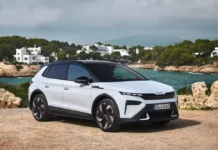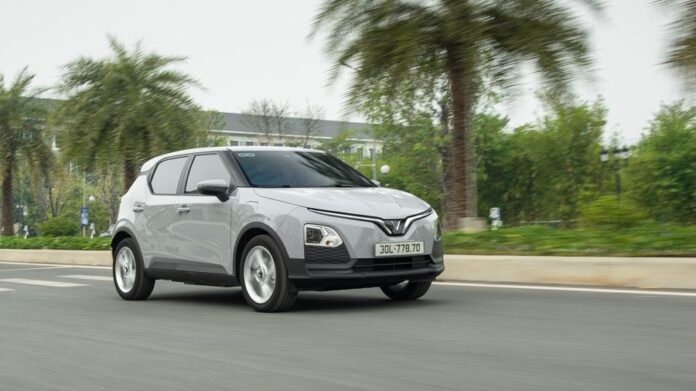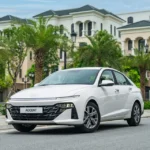Indonesia and Thailand witnessed a significant drop in car sales in 2024 compared to the previous year, while Vietnam, Malaysia, and the Philippines experienced a slight growth in vehicle sales.
Indonesia
Indonesia, the archipelago nation, sold 865,723 cars in 2024, surpassing the initially adjusted target (1.1 million down to 850,000) but still reflecting a 13.9% decline from 2023.
Leading car brands in this market, including Toyota (-14.2%), Daihatsu (-13.3%), Honda (-31.8%), Mitsubishi (-6.7%), and Suzuki (-17.6%), all experienced declining sales. For 2025, Indonesia has set a conservative target of selling between 750,000 and 900,000 cars.
Malaysia
The Malaysian market presented a contrasting picture, with the domestic brand Perodua thriving while foreign brands witnessed a slight decline in sales.
Overall, Malaysia sold 816,747 cars in 2024, a modest 2.1% increase. Perodua, the domestic brand, sold 385,102 units, an impressive 8.4% growth, capturing almost half of the market share. Meanwhile, foreign brands like Toyota (-5.2%), Mitsubishi (-25.6%), Mazda (-24.9%), and Nissan (-23.5%) saw decreases in their sales figures.
Thailand
Thailand’s automotive industry faced a challenging year, with car sales plunging to 572,675 units in 2024, a significant 26.2% drop from the previous year. This was the lowest sales figure the country has seen in the last 14 years.
A major concern with this decline is that the Thai automotive industry is structured to cater to a minimum of 600,000 cars sold annually. If sales fall significantly below this threshold, many supply and component businesses may face the risk of closure.
Most car brands in the Thai market experienced substantial declines compared to 2023. Brands heavily reliant on pickup trucks (Thailand’s top-selling segment) saw the most significant drops, with Isuzu (-43.7%) and Ford (-42.7%) leading the decline. Other brands like Toyota (-17.1%), Honda (-18.8%), MG (-36.9%), and BYD (-11.2%) also underperformed compared to the previous year.
The influx of cheap car models from China is believed to be a significant contributor to this situation. Mr. Supavud Saicheua, the chairman of the state planning agency, the National Economic and Social Development Council, commented on this shift in an interview with Reuters: “The Chinese are trying to export everywhere. Those cheap imports are really causing trouble.”
Philippines
The Philippine automotive market showed resilience, with car sales reaching 467,252 units in 2024, an impressive 8.7% increase from 2023. The top brands in this market were Toyota (capturing 46.66% market share), Mitsubishi (19.07%), Ford (5.99%), Nissan (5.73%), and Suzuki (4.36%). Toyota, Mitsubishi, and Suzuki grew by around 10%, while Ford declined by 10.6%, and Nissan experienced a minor 1.3% drop.
Vietnam
According to the Vietnam Automobile Manufacturers Association (VAMA), Hyundai Thanh Cong, and VinFast reports, Vietnam sold 494,310 cars in 2024, a substantial 22% increase from 2023. The actual figure may be even higher, as some brands do not disclose their sales data.
The market experienced a sluggish first half of the year, but government incentives on registration fees and automakers’ discounts and promotions boosted sales in the latter months.
VinFast, the domestic electric vehicle brand, more than doubled its sales compared to 2023, selling over 87,000 units in 2024. Vietnam now leads the region in electric vehicle market share, surpassing Thailand (12.3%), Indonesia (5%), and Malaysia (2.5%). Globally, Vietnam ranks second only to China in electric vehicle market share.
Thai Son (Tuoitrethudo)






























.jpg)
.jpg)
.jpg)
.jpg)
















